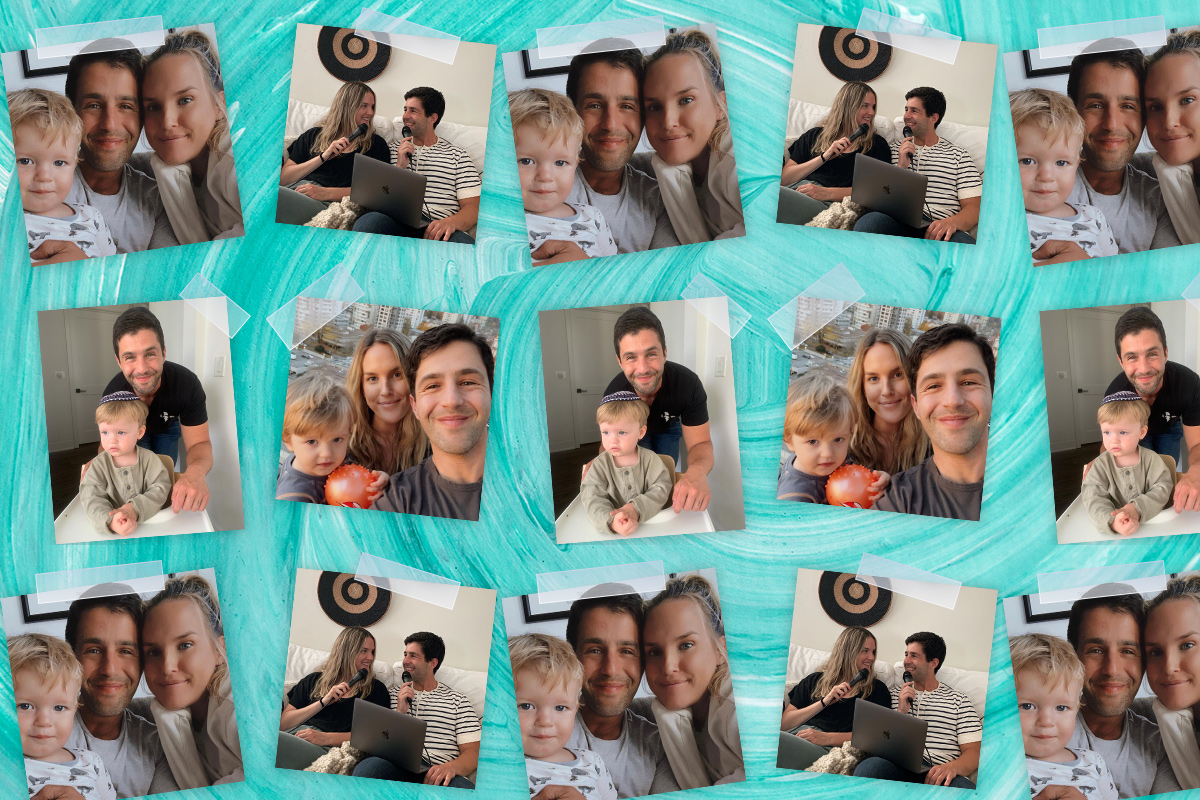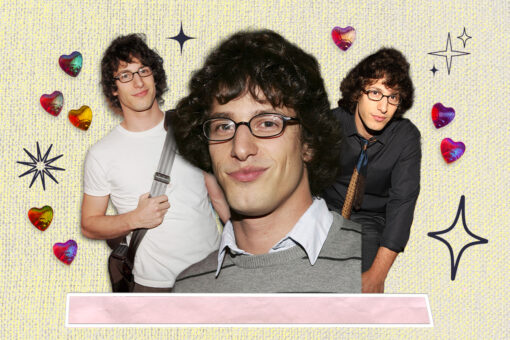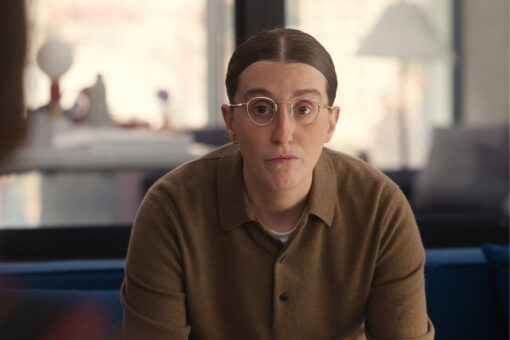If you don’t know who Josh Peck is, please take a moment to log into Hulu and enjoy an episode or two of “Drake & Josh.” After, come back when you’ve realized life can be more simple — with Josh Peck in it.
Josh Peck first gained notoriety for appearing as a regular on Nickelodeon’s “The Amanda Show” before getting his own show with Drake Bell in 2004. “Drake & Josh” has long been my comfort show: When things in life become too overwhelming, which is often, I’ll turn it on. Following two stepbrothers who come to live together in San Diego, California, Josh’s character was always more to me than just the goofy, awkward brother compared to Drake’s popular ladies’ man vibe. Josh Nichols was someone I could look up to as a role model.
Growing up, my peers bullied me about my weight and I became insecure about my body image, an issue that persists today. However, seeing Nickelodeon embrace a heavier person (at least for Hollywood standards) for their personality, without the punchline being about their weight, allowed me to experience my body without shame. Even when Josh lost weight, the show never had harsh remarks about his “former” body. I may always struggle with my body image, as will others, but this kind of positive representation did feel like a huge deal to me.
What I didn’t know at the time — and what might have been an even bigger deal to me — is that Josh Peck is Jewish. I had no idea until the day I fell down a YouTube rabbit hole which led me to a clip of him on the “Rosie O’Donnell Show” when he was 10 years old. It was one of the first — if not the first — television appearances of Peck’s career as he charmed everyone with a hilarious stand-up routine full of sardonic jokes, as he introduces himself being “born during the Great Depression … [his] mother’s!” After many more hours on YouTube, I turned to Google to learn even more about Josh.
At 19, I started exploring my Judaism and began reconnecting with my Jewish identity after growing up agnostic, because of my parents’ choice. With jealousy, I read about Josh’s Broadway-themed bar mitzvah — held in an Italian restaurant! — which he had around the time he was offered his role on “The Amanda Show.” In JVibe Magazine, Josh talked about his experience with having a mentor from the Jewish Big Brother Foundation, saying how instrumental his mentor hadbeen in his life and the bond they shared, which was really important to him since he did not grow up with a dad. I experienced a sense of kinship with him: I’d been looking up to him for years as a pseudo-mentor, while he was receiving help from real mentors himself.
And then, I learned about Josh, his wife, and their interfaith family. Josh married Paige O’Brien, a Catholic woman, in 2017, and the couple welcomed a son, Max, in December of 2018. After learning that they are bringing their son up as an interfaith family, I became filled with enormous pride. Upon finding one of Josh’s Instagram posts from December 2020, during Hanukkah, featuring a video his wife and son in front of a menorah. The menorah has just been lit for the third night of Hanukkah and they are all singing a rendition of “Happy Birthday” to the menorah, when Max tries to blow out the candles. Josh has captioned the Instagram post with, “When your son starts to sing Happy Birthday Hanukkah and blow out the Menorah, you realize he’s only half. #Cashew #Catholicjew,” I was elated. His most recent post celebrates his family’s Jewish side, with both him and his son wearing their yarmulkes while he wishes everyone, “Shabbat Shalom.”
I’ve always felt conflicted with my Jewish identity because I grew up in an interfaith family. My mother is Jewish and grew up Orthodox, while my dad is from an interfaith family and grew up agnostic (his mother was Jewish and his father was Catholic). My parents raised me and my siblings with no religion, and I never went to temple unless I was visiting my mother’s side of the family.
Growing up, I had always wished to belong to a Jewish community. When I was around 9 or 10 years old, my mother signed my sister and I up for Jewish religious day school on the weekends, but after an embarrassing incident where I had a Hershey’s chocolate bar melt all over my pants, we never returned. A few years later, we visited another temple one Wednesday night, but that was it. I always longed for more. When we visited my mother’s family in New York, the absence of Judaism in my life felt incredibly apparent. With every passing year, and as each of my cousins had their bar and bat mitzvahs — even my brother had one — while my sister and I did not, I felt even more alone.
For many years, I did not know what the term interfaith was. But I knew the meaning behind it, since that is how I lived and still live. Every Christmas Eve, my father would take us to our aunt’s and we would have a dinner together. I thought Christmas was a taboo subject for my Jewish side of the family, but that belief of mine was proven wrong when my grandmother came to see my sister perform in the Nutcracker Ballet and she asked if I was excited for Christmas. I froze, and my grandmother looked at me oddly. She then reassured me that it was OK for me to celebrate Christmas and that she knew that my siblings and I did so with our dad. My grandmother’s acknowledgment, even her approval, meant more to me than I understood that night. It had calmed years of anxiety that lived in the back of my young mind.
But it’s only within recent years that I’ve really connected with my Judaism. I have been struggling with my mental health for many years, and after experiencing many hospitalizations, I slowly began looking to God for help. I didn’t get the answer or help that I thought I would get, but instead I realized that connecting with my Jewish self was bringing me closer to a sense of peace, and it also has made me feel more connected to my grandparents and family. Last summer, I joined a temple and it felt like coming home. My temple has been there for me in so many ways that I never knew or expected they would be. In March, my grandfather passed away, and the temple was immediately there to support not only me, but my family as well.
There is so much beauty in interfaith families, but we often hide it behind walls of shame and/or the denial of our Judaism. To this day, I struggle with admitting that I grew up interfaith, partly because of the under-representation in media and society, but also because of the stigma that still lingers within the Jewish community. Joining my temple has helped me feel more connected to to interfaith families and my interfaith identity. There are many temples who will not accept interfaith families and there are many who will require the children of interfaith families to convert in order to join, even if they grew up as a practicing Jew.
We should not have to prove our Jewishness in order to be accepted by our own community. So, when I saw Josh Peck’s posts unabashedly celebrating his interfaith family, not only did I feel seen, I felt validated for who I am as a Jewish person.
I know I am not the only person from an interfaith family to feel this way. There are many Jewish people who have been struggling with their identity as Jews because of growing up in families that aren’t super traditional. Yet, as Josh Peck is showing with the honest portrayals of his interfaith family on social media, you are who you are and there is no right or wrong. Josh Peck and his family are such a beautiful representation of Jewish and interfaith families, and I hope that it makes other people feel represented and seen as well.



